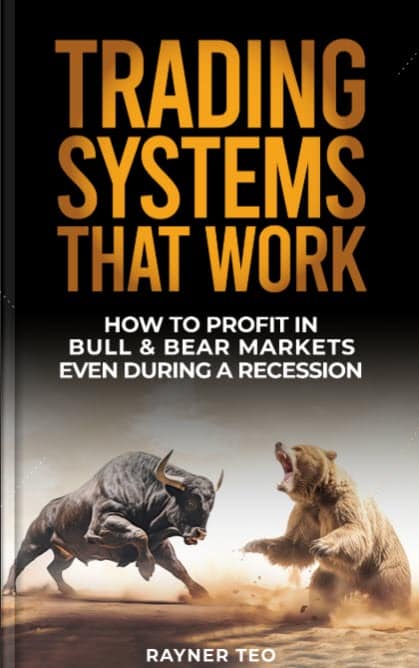Subscribe
Apple | Google | Spotify | Stitcher | Soundcloud | YouTube
In today’s episode, you’ll discover if you should follow your gut feelings when it comes to trading.
So listen to it now…
Resources
How to Create a Trading Journal and Find Your Edge in the Markets
How to Become a Professional Trader (It’s Not What You Think)
Transcript
Hey, hey, what’s up my friend?
Welcome back to today’s episode where I’ll be discussing if you should follow your gut feelings in trading.
Let me first explain what I mean by this because there are numerous scenarios to this.
What’s gut feelings
The first scenario, for example, you see the market breaks out and the price is bullish with huge momentum and you’re thinking, “Look at the huge range of the candles, the price is going to the moon, let me buy now!”
And then you look at your trading plan but it didn’t say you should be buying now because it’s not according to your rules. “But come on man, look at the charts. It’s bullish!” Your gut feeling tells you to buy, even though the trading plan says, “Well, not quite.”
That’s the first scenario. Another scenario could be you bought the breakout and the price goes in your favour. Then it starts to stall at a certain price level as though some mysterious force is trying to push the price down.
Then the price slowly reverses and starts moving against you. Now at this point, it’s coming close to your entry price. And you have seen your open profit vaporized.
You have this gut feeling, “Man, I should just quickly exit this trade at breakeven, don’t let this winning trade become a loser, just exit the trade at breakeven to protect my downside.” It’s that gut feeling telling you that there’s no reason to let the trade hit your stop loss.
You felt like you want to exit the trade earlier ahead of time, even though your trading plan, didn’t say it’s time to exit. That’s another common scenario.
Now after describing those two scenarios, the question is, should you follow your gut feeling? And my answer to you is no, you shouldn’t follow your gut feeling and there are a few reasons for this.
Gut feelings make you a losing trader
Here’s the thing, 95% of traders out there are losers. Trust me, when you have those kinds of gut feelings that I just shared with you, those are the same feelings that 95% of traders feel as well.
If you want to follow your gut feeling, there’s a good chance that you’re going to end up like one of those traders who follows their gut feelings and lose money consistently.
Gut feelings make your actions inconsistent
And the second reason for me saying no, you don’t want to follow your gut feeling is because when you follow your gut feeling, you’re making your actions inconsistent.
And when you get an inconsistent set of actions, guess what? That will lead to an inconsistent set of results.
If you’re going to follow your gut feelings, if you’re going to break your rules and not follow your trading plan, then what’s the point of trying to be disciplined, developing your trading plan, setting rules for yourself when you’re going to break it? It doesn’t make sense.
My honest and straightforward answer to you is this:
Gut feelings shouldn’t play a part in your trading, even if you’re a discretionary trader.
Now some of you might think that you are the exception, or you have that special gut feeling that somehow always seems to be more right than wrong.
And if that’s the case, then you can simply validate whether your gut feeling actually makes you more money in the long run or not.
Here’s what I want you to do…
Compare the results of your trades (gut feelings versus planned trades)
I assume you have a trading journal. So whenever you didn’t follow the rules but follow your gut feelings instead, record that trade down and also write down the results of that trade.
On one side of your journal, I want you to track those trades made from gut feeling:
- Is it a winner or is it a loser?
- What’s the profit on the trade?
- What is the risk to reward on the trade?
- Did you make a 2R or 3R trade?
Then on the other side, I want you to write down the results of the trades if you had followed your trading plan:
- What the outcome would have been?
- Would it have been a winner or a loser?
This way, after looking through a sample size of trades, you can compare those trades where you followed your gut feeling versus those trades where you followed your trading plan, to see which is more profitable.
Now you have the data to back it up, and you’ll know objectively, whether your gut feelings actually makes you more money or not. And my intuition tells me that, it’s better to follow your trading plan.
But again, some of you might think that your gut feeling is exceptional, so just do this simple exercise. Once you have a sample size of trades, compare it and you will have an objective answer.
Here’s a quick recap…
Recap
- Gut feelings shouldn’t play a part in your trading
- But if you want to implement it, then let the numbers speak for itself
With that said, I wish you good luck and good trading. I’ll talk to you soon.

